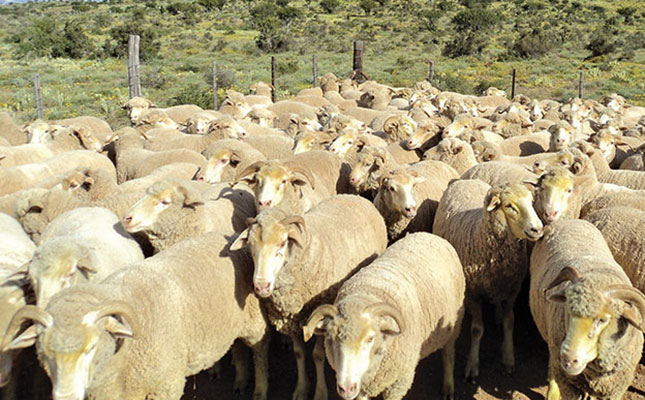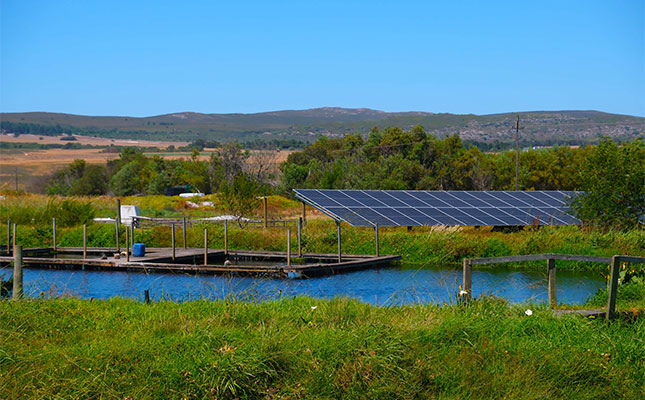
The South African Red Meat Producers’ Organisation (RPO) has welcomed today’s (25 August) judgment by the Grahamstown High Court to permit the exporting of up to 56 000 live sheep in a single shipment by sea from the East London Harbour.
The sheep have been held for months at an Eastern Cape feedlot pending the outcome of the National Council of Societies for the Prevention of Cruelty to Animals’ (NSPCA) legal bid to achieve a permanent ban on livestock exports by sea from South Africa.
READ Storm rages around live sheep exports ahead of court case
Judge AJ Dukada ruled against the NSPCA, and ordered Kuwait-headquartered company, Al Mawashi, and its fellow respondents cited by the NSPCA in the matter, to proceed with activities to export the sheep currently held at Castledale feedlot to the Middle East.
However, Dukada also ordered the respondents to strictly adhere to all of the World Organisation for Animal Health’s (OIE) prescripts for the humane handling and transport of the sheep.
Dukada specifically tasked animal health and welfare officials from South Africa’s Department of Agriculture, Land Reform and Rural Development (agriculture department) to ensure that these prescripts were met.
READ True data on informal farming sector vital – BFAP report
“By no later than the noon on the day following the completion of the final loading of the sheep [onto the Al Messilah], the [agriculture] department is directed to email an affidavit to the registrar appointed in terms of the Animal Improvement Act No. 62 of 1998,” Dukada ordered.
He said this affidavit had to include confirmation that the agriculture department had monitored the sheep from the Castledale feedlot to aboard the ship; the names and qualifications of the agriculture department officials who conducted this monitoring; and confirmation that the movement of the sheep from the feedlot to aboard the ship was carried out in terms of the relevant OIE prescripts.
“In the event of any non-compliance with the OIE prescripts […], or of the monitoring, the [agriculture] department is directed to immediately notify the Directorate of Veterinary Health in the department and [also] the registrar. The affidavit […] shall be filed in court one day after it being furnished to the registrar. [Al Mawashi, and Livestock Transport and Trading Company PSC] shall not seek an export permit in terms of section 17 of the Animal Improvement Act unless and until there has been compliance [with my judgment],” Dukada stated.
READ Rewards and pitfalls of communal wool production
Gerhard Schutte, CEO of the RPO, said that Dukada’s judgment was “good news” for South Africa’s red meat industry and for his organisation because “the opportunities generated by this trade in the future can make a meaningful change for [our] farmers at ground level in terms of demand for sheep in the Middle East”.
He added that the RPO would be studying Dukada’s judgment before giving a more detailed response.
Al Mawashi South Africa’s managing director, Ilyaas Ally, also welcomed Dukada’s judgment. He explained, however, that it pertained only to the imminent shipment of the 56 000 sheep currently being held for export, and that the NSPCA was still pursuing a permanent ban on any further livestock exports by sea from the country.
“Animals are shipped in a humane way in line with the requirements of the OIE codes. Our company [has] exceeded all animal welfare standards during all shipments between South Africa and the Middle East since live exports started in 2019. We are currently planning [on] loading the ship, and we look forward to finally opening the next [sheep] procurement window,” he said.
NSPCA spokesperson, Meg Wilson, said: “Unfortunately, we are currently unable to provide any comment as we are consulting our legal counsel.”
Get trusted farming news from Farmers Weekly in Google Top Stories.
➕ Add Farmers Weekly to Google ✔ Takes 10 seconds · ✔ Remove anytime










